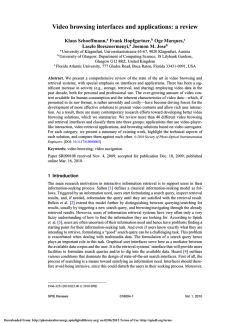
Bite the Ballot video transcription
Bite the Ballot - Transcript A shot of a student, called Bethany, in the library. Bethany says: “What percentage of 18 and 24 year olds do you think voted in the last general election?” Shot changes to woman 1 in a locker room, shaking her head. She answers: “not a clue.” Shot changes to woman 2, she answers: “I don’t know, 30 or something.” Shot back to Bethany continues: “It was actually 44%.” Shot changes to another student, called Jack, who asks: “What percentage of over 65s do you think voted in the last general election?” Shot changes to woman 1 who answers: “30%.” Shot changes to woman 2 who answers: “It’s going to be more, I think, so about like 60.” Changes back to Jack who says: “It was actually 75%.” Shot changes to a group of four students, camera angle looking down. One student holding a sign that says Bite the Ballot. Students altogether say: “Does this matter? Yes!” Shot changes to somebody videoing some students. The narrator says: “Parliament won’t write policies for people who don’t turn up on Election Day, let alone for those who don’t appear on the electoral register. So the first step towards change is to make sure every 16-24 year old is registered, and are aware of how important they are, as individuals and as a collective voice.” During the narrative shot changes between a group of students and cameraman with background noise of their discussion. Narrator continues: “Maybe you haven’t registered because you’re not interested in politics.” Shot changes to a student called Katie, she asks: “What does the word politics mean to you?” Shot changes to woman 3 who says: “Erm democracy” Shot changes to man 1 who answers: “The way a certain group of people run a country.” Shot changes to woman 4, she adds: “Anything that matters to you that you’ve got an opinion on that’s worth fighting for.” Shot changes to a student called Sam, who asks: “What issues matters to you?” Shot changes to woman 3, she says: “Whether peoples’ opinions actually get across to politicians.” Shot changes to man one who answers: “More of the benefits that the people get that aren’t as well off as other people.” Shot changes to woman 4, she says: “Tuition fees and how much support young people get when they come out of university.” Shot changes to woman 2 who adds: “education because education is always the start of everything.” Shot changes to black screen with the writing saying ‘The Facts.’ Narrator adds “Politics is unescapable.” The writing changes several times: ‘The pavement You Step on, the roads you will drive on, the water you drink, the fact it’s safe, the food you eat regulated F.S.A, the amount of money you will make, with the narrator speaking these words. Shot changes to group of students, one holding the bite the ballot sign. They all say: “Politics.” Shot changes back to black screen with the writing changing, how much you pay for things, video games…TVs… A new car, the films you watch regulated by B.B.F.C, the air you breathe, regulations on pollution. Now are you interested? You need to register to vote! (Narrator continues to speak these words as they appear on the screen.) Shot changes to Megan Patterson. The narrator asks: “So how can I register to vote?” Megan responds “You can either do it on the internet through directgov, so just put your details in and then that will be done, or you’ll get a letter through from your local council and fill that in and send it off which is free post. Or if you don’t get a letter just get in contact with your local council and they’ll send you a form through. Shot changes to David Collingwood, Durham County Council. Narrator asks him “What can we expect before ballot day?” David answers: “Before polling day we publish a notice of election with all of the candidates’ details on. The candidates, might themselves, put out some leaflets for publicity. Shorter before the day of election, we’ll send a poll card, that is us telling all of the electorate that the election is going to take place and where they can go and when they can vote.” Shot changes to students handing in their poll cards at a polling station. Narrator continues: “What can we expect at the polling station?” David adds: “When you arrive at the polling station, you will attend the building itself, you approach the presiding officer and the poll clerk, you will identify yourself, giving your name and address, they will check you details against the register of electors and issue you a ballot paper. You take the ballot paper behind the polling screens; very quickly you will mark your vote with an X in the box. You fold the voting slip and then drop it back into the ballot box. Shot changes to Megan, narrator says: “I don’t know who to vote for?” Megan answers: “As individuals, you have the power to research and challenge ideas that come your way. Don’t be put off by any complicated political language, just go on the internet, see what the parties are saying and have a look, inform yourself. Shot changes to black screen with writing appearing, changing to different text as the narrator speaks them. The narrator start “Save the dates! To have your say you must register to vote by April 20th. If you want a postal vote, your application must be filled out and returned by April 21st. Do your research, then bite the ballot on May 7 and make sure your voice is heard.” Shot changes to group of students, one holding bite the ballot sign. They shout together; “Bite the ballot.” Shot changes to black screen with the credits. It reads ‘Bite the Ballot was made by Sixth formers at North Durham Academy with Durham County Council and Bite the Ballot.’
© Copyright 2026
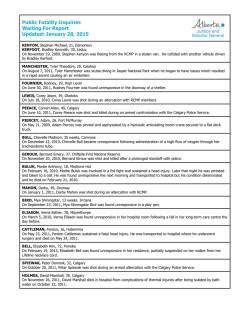
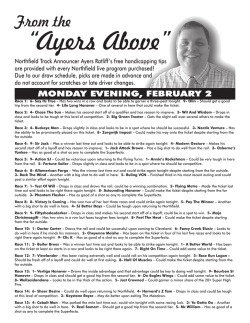
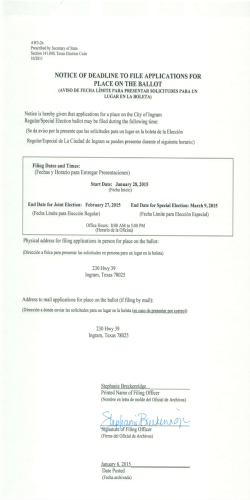
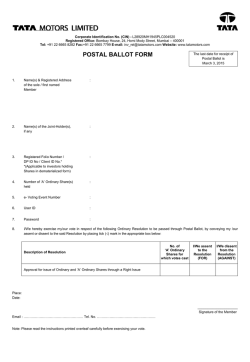
![[ 1 ] NOTE: LAST DATE OF RECEIPT OF POSTAL BALLOT](http://s2.esdocs.com/store/data/000489684_1-7e4047aa8dd7d7193789d756c5e00460-250x500.png)
